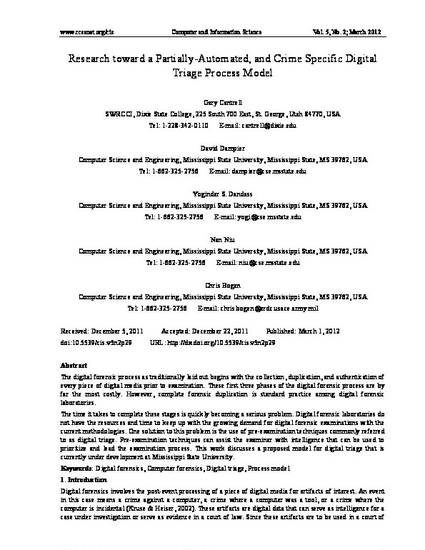
The digital forensic process as traditionally laid out begins with the collection, duplication, and authentication of every piece of digital media prior to examination. These first three phases of the digital forensic process are by far the most costly. However, complete forensic duplication is standard practice among digital forensic laboratories.
The time it takes to complete these stages is quickly becoming a serious problem. Digital forensic laboratories do not have the resources and time to keep up with the growing demand for digital forensic examinations with the current methodologies. One solution to this problem is the use of pre-examination techniques commonly referred to as digital triage. Pre-examination techniques can assist the examiner with intelligence that can be used to prioritize and lead the examination process. This work discusses a proposed model for digital triage that is currently under development at Mississippi State University.

The version of record is available from the publisher at https://doi.org/10.5539/cis.v5n2p29. Copyright © 2012 The Authors.
This work is licensed under a Creative Commons Attribution 4.0 License.